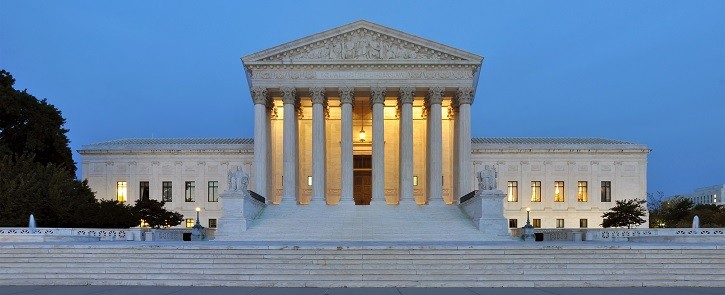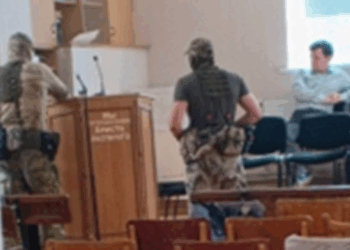Press Releases
|
August 14, 2025

(Washington, DC) – Judicial Watch announced today that the Supreme Court of the United States has scheduled oral argument for October 8, 2025, in its lawsuit filed on behalf of Congressman Mike Bost and two presidential electors, who are before the court to vindicate their standing to challenge an Illinois law extending Election Day for 14 days beyond the date established by federal law.
On July 22 Judicial Watch announced that it filed its opening brief to the Supreme Court in this case (Rep.Michael J. Bost, Laura Pollastrini, and Susan Sweeney v. The Illinois State Board of Elections and Bernadette Matthews (No. 1:22-cv-02754, 23-2644, 24-568)).
In June, the Supreme Court agreed to hear Judicial Watch’s appeal of the decision of the U.S. Court of Appeals for the Seventh Circuit in this case. The lower courts had denied that Bost and the electors had standing to challenge Illinois’ practice of counting ballots received up to 14 days after Election Day. The Election Day lawsuit was initially filed on May 25, 2022.
The Judicial Watch Supreme Court brief states:
Federal law sets the first Tuesday after the first Monday in November as the federal Election Day.
***
Candidates have an obvious interest in the lawfulness and fairness of the rules that govern the elections into which they pour their time and resources. They also have an obvious interest “in ensuring that the final vote tally accurately reflects the legally valid votes cast.”
***
Candidates pour enormous resources into running for election and have an obvious interest in the rules that dictate how long their races will last and how the ballots will be counted. They also have a distinct interest “in ensuring that the final vote tally accurately reflects the legally valid votes cast.”
“Simply put, this is a historic election law challenge. Too many courts have denied candidates their right to challenge unlawful election rules such as the outrageous act of counting ballots that arrive AFTER Election Day. American citizens concerned about election integrity will tune in closely to Judicial Watch’s Supreme Court arguments on October 8,” Judicial Watch President Tom Fitton said.
Judicial Watch is a national leader in voting integrity and voting rights. As part of its work, Judicial Watch assembled a team of highly experienced voting rights attorneys who stopped discriminatory elections in Hawaii, and cleaned up voter rolls across the country, among other achievements.
Robert Popper, a Judicial Watch senior attorney, leads its election law program. Popper was previously in the Voting Section of the Civil Rights Division of the Justice Department, where he managed voting rights investigations, litigations, consent decrees, and settlements in dozens of states.
Paul Clement, who has argued more than 100 cases before the Supreme Court, is representing Congressman Bost and the electors with Judicial Watch before the Supreme Court. Clement is former solicitor general under President George W. Bush from 2005-2008 and is widely regarded as among the top Supreme Court litigators in the country.
T. Russell Nobile, a Judicial Watch senior attorney, is part of Judicial Watch’s voting integrity efforts and focuses on campaign and voting issues, civil rights issues, constitutional law, official misconduct by public institutions and officials, and other issues.
Judicial Watch recently filed a brief to the U.S. Supreme Court on behalf of the Libertarian Party of Mississippi, opposing the State of Mississippi’s attempt to overturn the U.S. Court of Appeals for the Fifth Circuit’s decision, which struck down a law allowing ballots received after Election Day to be counted
Federal courts for Oregon, California and Illinois have ruled that Judicial Watch’s lawsuits may proceed against those states to force them to clean their voter rolls.
Judicial Watch announced in May that its work led to the removal of more than five million ineligible names from voter rolls nationwide.
###




![Gavin Newsom Threatens to 'Punch These Sons of B*thces in the Mouth' [WATCH]](https://www.right2024.com/wp-content/uploads/2025/08/Gavin-Newsom-Threatens-to-Punch-These-Sons-of-Bthces-in-350x250.jpg)
![ICE Arrests Illegal Alien Influencer During Her Livestream in Los Angeles: ‘You Bet We Did’ [WATCH]](https://www.right2024.com/wp-content/uploads/2025/08/ICE-Arrests-Illegal-Alien-Influencer-During-Her-Livestream-in-Los-350x250.jpg)







